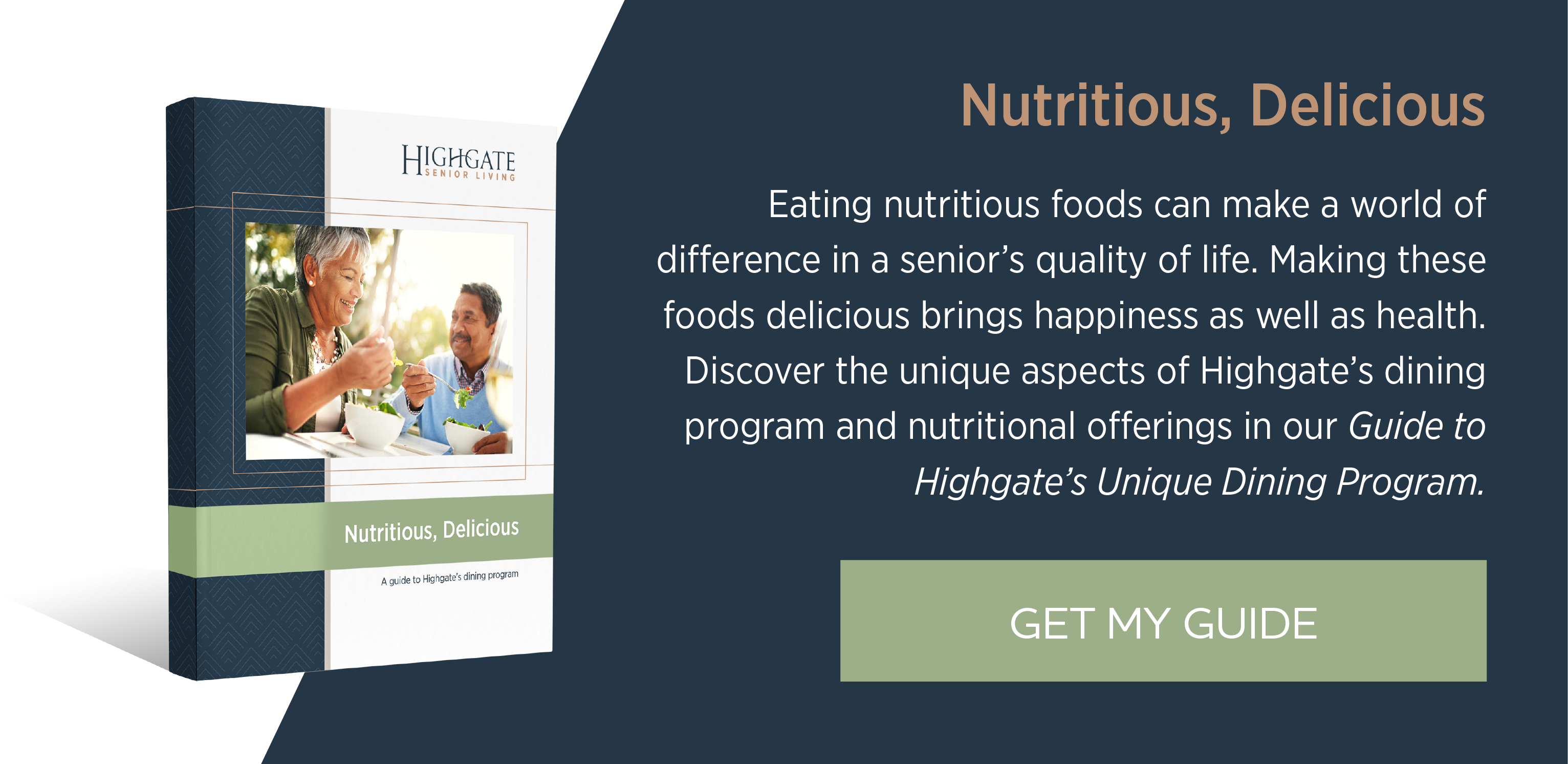
Have you ever thought to yourself, “The dishes I’ve always liked the most just don’t taste the same as they used to” or “Now that I live alone, it's too much trouble to cook for one”?
Eating a healthy, balanced diet is important for everyone. As you age, healthy eating can make an even bigger difference in your health, improving how you feel and encouraging a sense of well-being. However, changes in your home life, health, medicines, income, and even your sense of smell and taste may affect your interest in healthy eating and your daily eating habits.
Eating healthy meals can be easier when you plan ahead and make them enjoyable. Click through the slideshow to see some senior nutrition health tips.
Senior Nutrition Concerns
Seniors are at greater risk of failing to the meet their nutritional needs and being misdiagnosed with various illnesses as a result. Problems that interfere with seniors’ proper nutrition include:
- Aging taste buds
- Hearing difficulties
- Absent aromas
- Problematic teeth
- Slowed metabolism
- Medication
- Psychological and financial factors
For instance, seniors tend to lose taste buds over time, and that might change how you experience different flavors. So maybe the same food you used to enjoy can start to seem more bland or sour, which isn’t that appetizing. Or some older adults find that their teeth and gums change as they age. If you are experiencing dental problems, you might find it hard to chew fruits, vegetables, or meats.
Because of these and other challenges, many seniors become malnourished. If you’re malnourished, you might lose muscle mass, which may increase weakness, or you might experience a general decline in your well-being. Not getting the right vitamins and minerals that nourish your body and fight illness can also lead to chronic diseases, such as high blood pressure, diabetes, hypertension, and heart disease.
Healthy Eating Resources for Seniors
As you age, your body requires fewer calories, which means you have fewer calories to help you get the nutrients your body needs for energy. So you need to eat foods that are high in nutrients or are “nutrient dense.”
Nutrient-dense foods pack a lot of vitamins, minerals, and other nutrients your body needs into a small number of calories.






